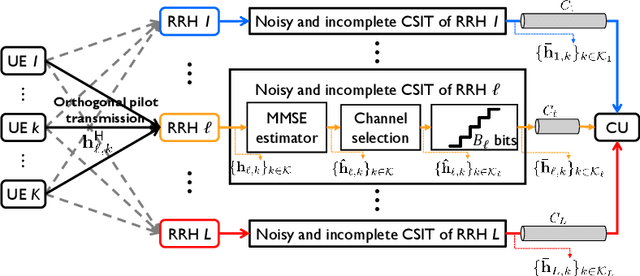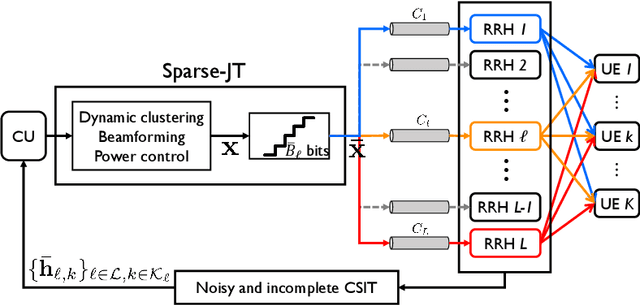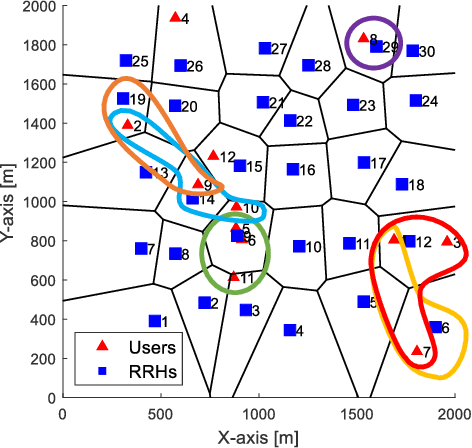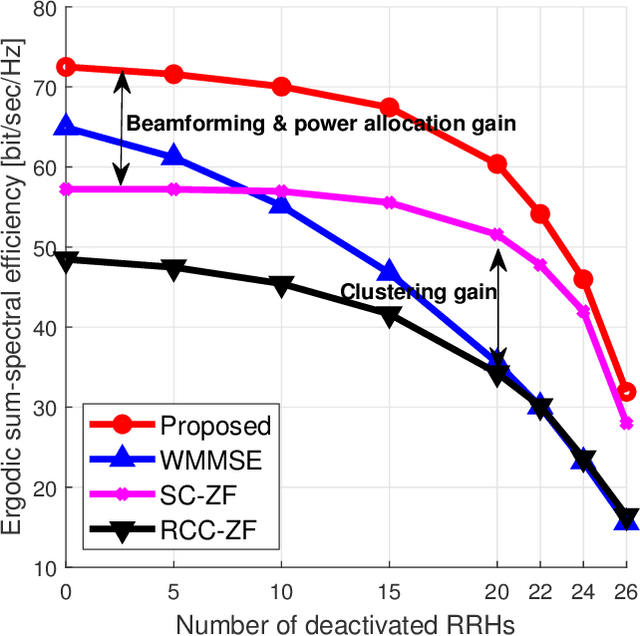Sparse Joint Transmission for Cloud Radio Access Networks with Limited Fronthaul Capacity
Paper and Code
Jul 29, 2021



A cloud radio access network (C-RAN) is a promising cellular network, wherein densely deployed multi-antenna remote-radio-heads (RRHs) jointly serve many users using the same time-frequency resource. By extremely high signaling overheads for both channel state information (CSI) acquisition and data sharing at a baseband unit (BBU), finding a joint transmission strategy with a significantly reduced signaling overhead is indispensable to achieve the cooperation gain in practical C-RANs. In this paper, we present a novel sparse joint transmission (sparse-JT) method for C-RANs, where the number of transmit antennas per unit area is much larger than the active downlink user density. Considering the effects of noisy-and-incomplete CSI and the quantization errors in data sharing by a finite-rate fronthaul capacity, the key innovation of sparse-JT is to find a joint solution for cooperative RRH clusters, beamforming vectors, and power allocation to maximize a lower bound of the sum-spectral efficiency under the sparsity constraint of active RRHs. To find such a solution, we present a computationally efficient algorithm that guarantees to find a local-optimal solution for a relaxed sum-spectral efficiency maximization problem. By system-level simulations, we exhibit that sparse-JT provides significant gains in ergodic spectral efficiencies compared to existing joint transmissions.
 Add to Chrome
Add to Chrome Add to Firefox
Add to Firefox Add to Edge
Add to Edge